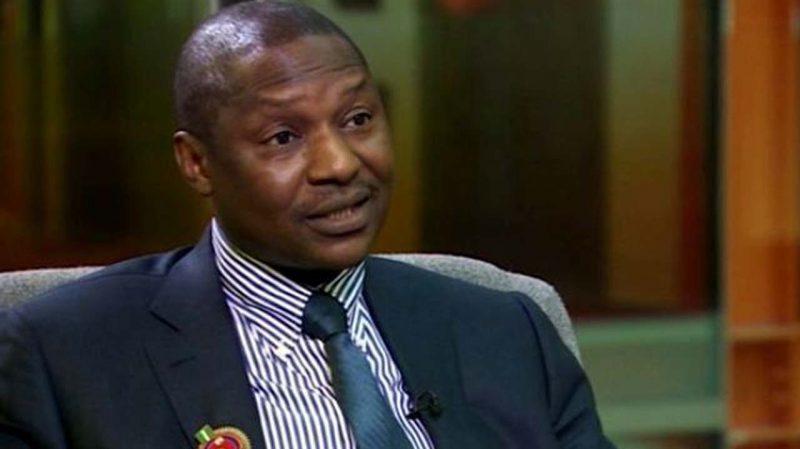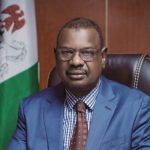Nigerian govt votes N500 million for prosecution of Boko Haram suspects, others

Over 10,000 Boko Haram suspects and others are projected to be prosecuted with the money, according to the breakdown of the federal ministry of justice’s approved 2022 budget.
The federal government has voted N500 million for the prosecution of Boko Haram cases and other criminal suspects in the year 2022.
Over 10,000 suspects are projected to be prosecuted with the money, according to the breakdown of the federal ministry of justice’s approved 2022 budget.
Described as a “new” project in the budget, the allocation is to be expended on fresh Boko Haram and other criminal cases filed in court by the ministry.
The federal ministry of justice has a mass trial arrangement with the Federal High Court that enables judges to be deployed to try terrorist suspects at the various military detention facilities holding the suspects in different parts of the country.
Under the arrangement, the logistical challenges of moving a large number of terror suspects to face trial at the Federal High Court in Abuja or other divisions of the court, is conquered, but there have been local and international concerns about the fairness and thoroughness of the process.
Three phases of the mass trial have been held so far.
The new N500million provision voted for the prosecution of Boko Haram suspects and other criminal cases is different from the over N300million voted for the prosecution of other “ongoing” cases, some of which are also Boko Haram-related.
The “ongoing” cases tagged as ‘Prosecution of prison inmates, maritime/offshore offences, Boko Haram suspects, offenders of government recovered assets, and improving asset recovery and monitoring process’ is to gulp a total of N308,647,164, the budget stated.
Representing about 2.95 per cent of the total N17 billion budget of the ministry, the prosecution of the new Boko Haram cases is the project with the third-largest allocation among the 12 projects listed in the ministry’s 2022 budget.
It comes directly behind ‘Establishment of a Federal Taskforce and Development of a Federal Contracts Administration System (FCAS) in Nigeria’, with N821million allocation.
The project with the highest allocation, tagged as ‘Intervention fund to support the FGN’s Reform Initiatives at the Disposal of Terrorism Cases, prison reforms and decongestion programme as well as the activation on the national cyber security coordination centre to support ongoing reform,’ is billed to gulp N5billion.
Nigeria contends with years-long accumulated terrorism cases with thousands of suspects held in military detention facilities in different parts of the country awaiting trial.
Amnesty International had serially reported deaths of Boko Haram suspects in military detention facilities, as they swell in number over the years without trial.
In December 2020, the human rights organisation claimed that over 10,000 detainees had died in detention since 2011, a charge the Nigerian Army denied.
Of the thousands of detained Boko Haram suspects, only 800 of them were being prepared for trial as of May 2021, according to an official.
PREMIUM TIMES reported in May that a Deputy Director, Chioma Onuegbu, who was then heading a team of prosecutors handling the ministry’s “complex cases”, said the 800 suspects were among about 1,000 terrorism suspects whose case files were analysed by prosecutors in her team.
According to her, out of the 1,000 case files that were reviewed in 2019, 800 had prima facie evidence with which to proceed to trial, while 170 lacked evidence and the suspects in them were recommended for release.ⓘ
Ms Onuegbu added that charges had been filed at the Federal High Court in 280 of the 800 cases. The charges had been served on the Legal Aid Council of Nigeria (LACON) which defends the suspected terrorists, the prosecutor explained further.
The Complex Casework Group (which was established some years ago,) has conducted three different phases of trials of the suspects at various military detention facilities, the then head of the group said.
The fourth phase was originally scheduled to take off in 2019, after the review of the files of 1,000 suspects, but had to be postponed on at least two different occasions.
Ms Onuegbu said the prosecutions of the suspects were delayed due to the escalation of the Boko Haram attacks in 2019 and was further hampered by the outbreak of COVID-19 in 2020.
No new date has been fixed for it.
Perceived inadequate domestic efforts to deliver justice for the crimes committed by Boko Haram and the atrocities committed by the Nigerian military in the ongoing conflicts in the North-eastern part of the country made the International Criminal Court (ICC) made to decide in December 2020 to investigate the country.
On Tuesday, the Attorney-General of the Federation and Minister of Justice, Abubakar Malami, assured that the trial of suspected perpetrators of terrorist activities and members of the terrorist group, Boko Haram, would soon commence.
“’Machineries’ are in motion to ensure the continuation of courts sitting in Kainji, New Bussa for the prosecution of Boko Haram cases,” Mr Malami said, while receiving the Nigerian Ambassador to the Kingdom of the Netherlands, Eniola Ajayi, in Abuja on Tuesday.
Boko Haram, which started in Maiduguri, Borno State, in about 2009, has waged deadly war leading to the death of tens of thousands and displaced millions of residents in the North-eastern part of Nigeria.
Mr. Malam said in May last year that the federal government had identified 400 suspected Boko Haram sponsors being prepared for trial.
He promised that the suspects would soon be prosecuted, but no serious step is known to the public to have been taken in that direction since then.
With a total budget allocation of N17, 061,387, 398, to the Federal Ministry of Justice in the 2022 appropriation, personnel cost will gulp N3, 907, 581, 732.
In the 2022 fiscal year, total overhead and recurrent expenditures will cost N4,901,943,073 and N8,809,523,805, respectively.
The ministry will spend N8,251,863,593 as total capital expenditure.
While sensitisation exercises on the role and responsibilities of the Legal Aid Council of Nigeria will swallow N170 million, citizens’ rights, sexual and gender-based violence response and torture reduction will cost the government N90,303,254.
Local and international travel will cost N84,862,831 and N106,560,252, respectively.
According to the 2022 fiscal year document, another budget item similar to the prosecution of 10,000 Boko Haram suspects is the “prosecution of prison inmates, maritime/offshore offences, Boko Haram suspects, offenders of government recovered assets, and improving asset recovery and monitoring process,” which will cost N308,647,164.






0 Comments